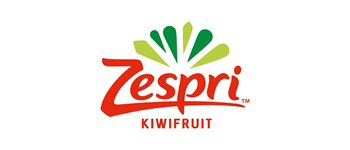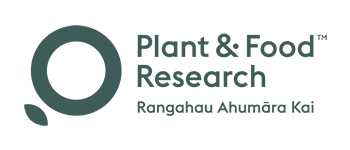2022 Awards Finalists
The KiwiNet Awards celebrate heroes in research commercialisation — those individuals and organisations whose best practice approach is changing the innovation landscape in New Zealand. We congratulate the 2022 finalists!
Momentum Student Entrepreneur Finalists
This award recognises a highly motivated university student who looks beyond the science and sees the prize - how their idea can change the world. The student is making outstanding contributions to business innovation or has created innovative businesses in New Zealand through technology licencing, start-up creation or by providing expertise to support business innovation.
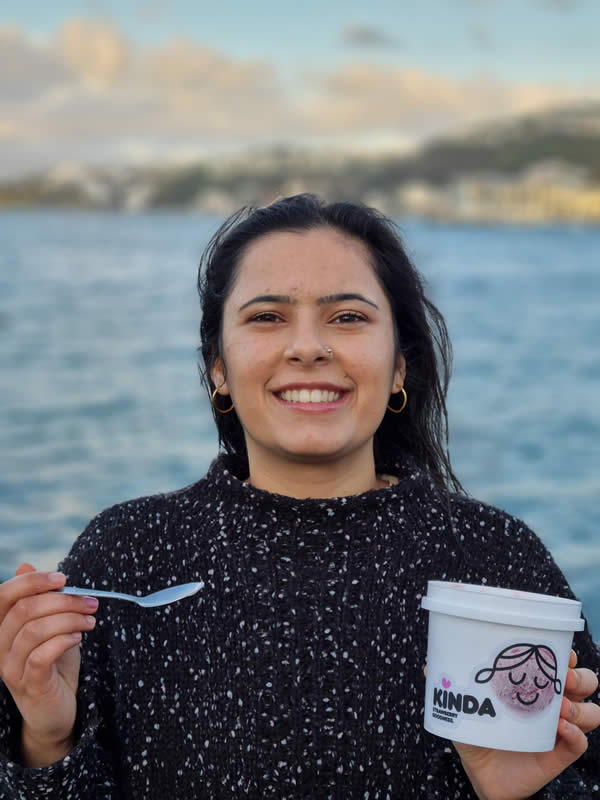 Mrinali Kumar
Mrinali Kumar
Massey University
Is it Ice cream? Yeah, Kinda
 Muhammad Rehan
Muhammad Rehan
Massey University
Ingestible robot for gut sampling
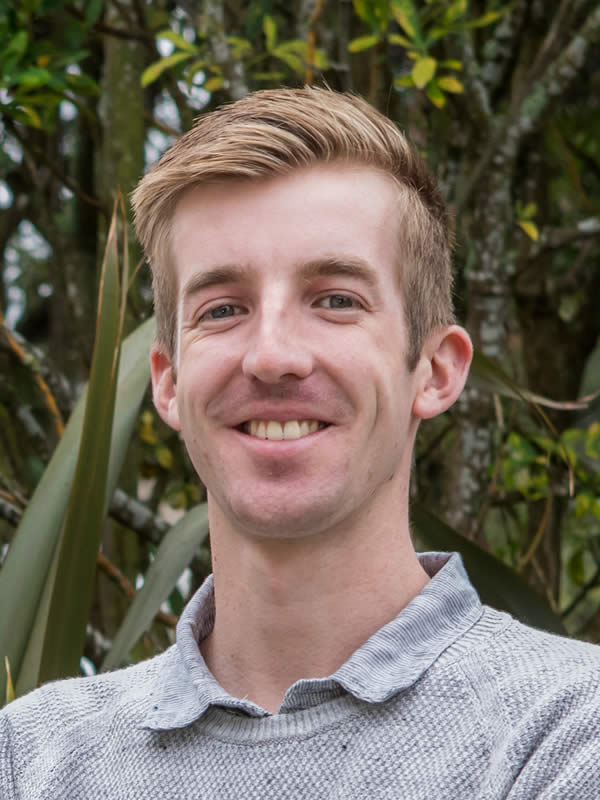 Ben Scales
Ben Scales
University of Canterbury
Designing a better world through smarter materials
Mrinali Kumar, Massey University
Is it Ice cream? Yeah, Kinda.
Mrinali Kumar is studying towards a Masters in Food Technology at Massey University. At the end of her fourth year of her Bachelor's degree, Mrinali participated at start-up weekend in Taranaki, where she met her co-founder Jenni Matheson, who presented the idea of a cauliflower-based ice cream. Post competition, Mrinali and Jenni decided to create Kinda, and turn a benchtop formulation into a commercial product.
Kinda is making animal free foods taste better, by using Science, Technology and a bit of kiwi ingenuity. The first product range to market is ice cream, which uses a key ingredient utilising 93% less land, 81% less water, produces 84% less greenhouse gasses and 53% less nutrient runoff into the environment, compared to dairy milk. Kinda ice cream, has been created with an innovative formulation using cauliflower. This creates a creamier, dairy like texture with a higher melting stability then competitor products. Kinda doesn’t like food waste, so they have partnered with Social Enterprise - Perfectly Imperfect to utilize ‘cosmetically imperfect’ cauliflower and to add value to New Zealand growers.
Meat and dairy contribute 14.5% of global greenhouse gas emissions, directly impacting climate change. 42% of the worldwide population are reducing their meat and dairy intake and opting for plant-based alternatives. Kinda has seen a global opportunity within the plant-based space for New Zealand to lead in.

Mrinali Kumar

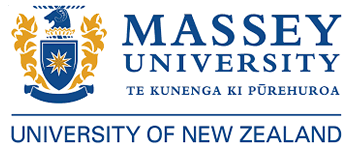
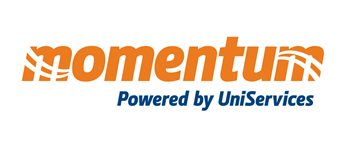
Muhammad Rehan, Massey University
Ingestible robot for gut sampling.
Muhammad Rehan, an electronic engineer and a roboticist, is commercialising his pill-sized robot that could change the traditional methods of gut sampling by offering a better diagnosis. This method of sampling gut microorganisms can tell us a lot about nutrition and health and can even assist in the early diagnosis of diseases such as cancer, diabetes, and obesity.
This technology has transformed current passive capsule endoscope technology into smart robotic capsules capable of collecting gut samples for the early diagnosis of diseases. This pill-sized device would travel along the entire gut, collecting samples from different sites of interest without cross-contamination. The capsule and the collected samples would be recovered from the faeces. The robot is equipped with a mechanism to collect samples, a storage chamber to protect the samples, an actuator (electronic device) to activate the process at a target site, and a battery to energise the actuator.
Creating a new ‘small-scale medical device’ industry in New Zealand will help to create higher value products and share in the >$0.7 billion capsule industry worldwide (market projected to grow to 2 billion by 2030). Commercial development of this world-leading capsule technology by an NZ-based team will yield significant economic and health benefits.

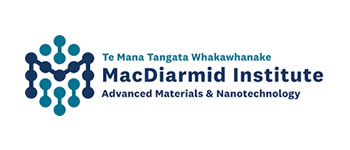


Ben Scales, University of Canterbury
Designing a better world through smarter materials.
Ben Scales is co-founder and CEO of next-gen materials start-up KiwiFibre and is studying towards a Bachelor’s degree in Industrial Product Design and Commerce at the University of Canterbury. Ben co-founded KiwiFibre with fellow student and industrial designer William Murrell in 2020 after discovering the potential harakeke (aka New Zealand flax) has in engineering applications and the effect it could have on the fast-growing natural-fibre composites industry. In addition, the co-founders learned and were inspired by what the harakeke industry once was and the historical and cultural importance this taonga species has to Aotearoa.
KiwiFibre develops natural-fibre composite material solutions to help global industries make environmental and social change. Their first customer is a $25B NASDAQ-listed global company using KiwiFibre to replace carbon fibre and fibreglass in a range of their products. KiwiFibre’s customers use the material for its exceptional strength to weight, energy absorption, radio transparency, and sustainability - leading to better products and industry outcomes.
After building their first MVP (minimum viable product), a harakeke fibre skateboard, on a barbeque in the backyard of their student flat, they are moving on to establishing supply relationships with global customers in industries from aerospace to geospatial engineering. KiwiFibre is raising a seed round this year as they look to grow and revolutionise industries.

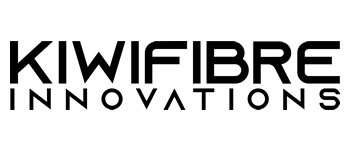


Breakthrough Innovator Finalists
This award recognises an upcoming entrepreneurial researcher who is making outstanding contributions to business innovation or is creating innovative businesses in New Zealand through technology licencing, start-up creation or by providing expertise to support business innovation.
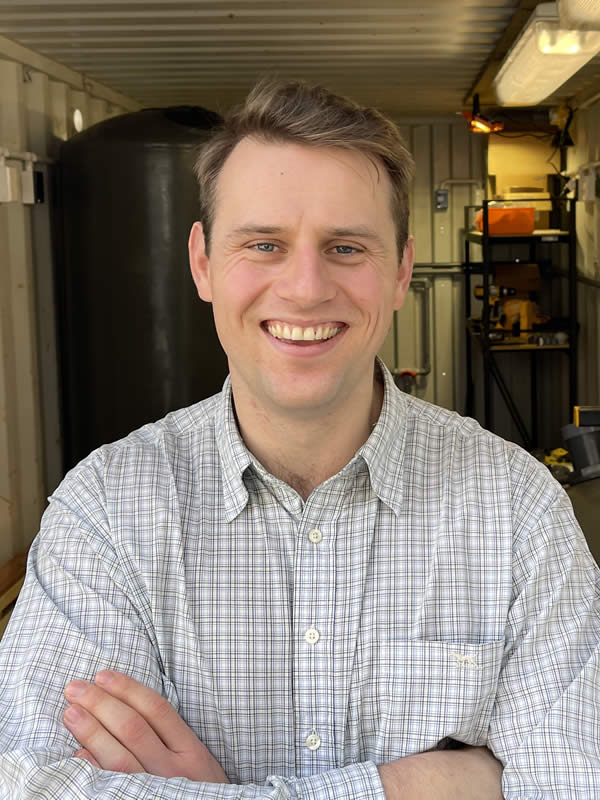 Jonathan Ring
Jonathan Ring
Zincovery / University of Canterbury
Zincovery – Decarbonizing Zinc recycling.
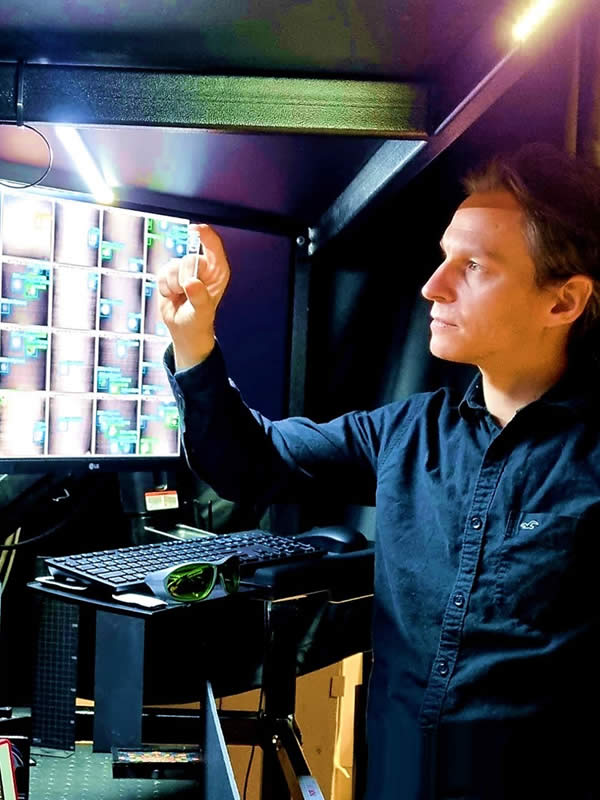 Alex Risos
Alex Risos
Risos Enterprises / University Of Auckland
The Waicorder™ - Rapid E. coli and protozoa analysis for our drinking water.
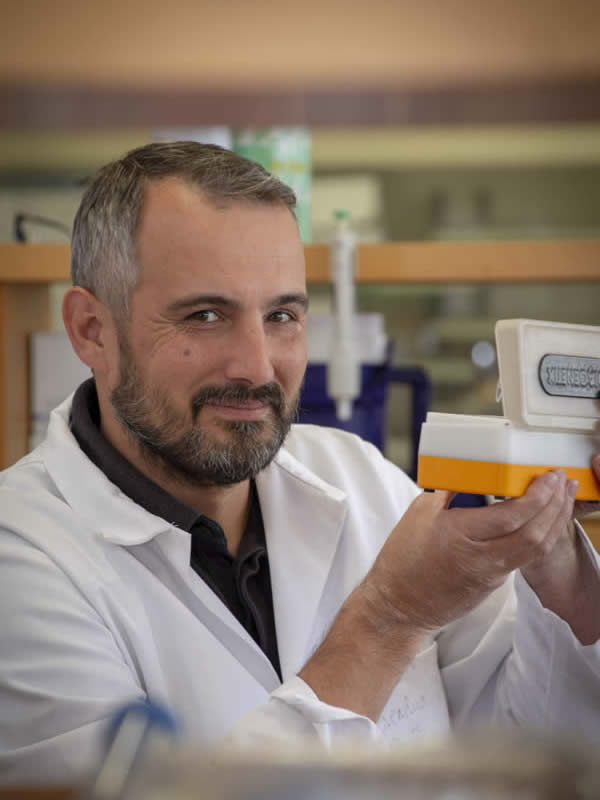 Dr Richard Winkworth
Dr Richard Winkworth
Ampersand Technologies / Massey University
Protecting primary industries and the environment with next-generation DNA diagnostics.
Jonathan Ring, Zincovery / University of Canterbury
Zincovery – Decarbonizing Zinc recycling.
Jonathan Ring, Founder and CEO of Zincovery, has developed a disruptive technology to recycle zinc from furnace waste. One of its key benefits is the ability to produce zinc with 70% less carbon emissions than the existing recycling process.
Jonathan started the development of the ‘Zincovery' technology during his Master’s project with Professor Aaron Marshall at the University of Canterbury. Jonathan is committed to fighting climate change and protecting the environment from pollution. Current zinc recycling methods result in large carbon emissions and significant material wastage; Jonathan is determined to change that.
The Zincovery technology can recycle zinc and produce less than 1 tonne of CO2 per tonne of zinc (typically recycled zinc requires five or more) using an innovative, low-temperature furnace process. The technology has the potential to save isolated steel mills over $500,000 in transportation costs and reduce the landfilling of over 3 million tonnes of dust per year. The global market opportunity for the technology is estimated at over $10 billion per annum and growing.
Jonathan has taken his Master’s project from the lab to a start-up company in just two years and now manages seven employees. Under Jonathan’s lead, Zincovery has secured significant private investment, was awarded the prestigious C-Prize in 2019/20 and has customers lined up across multiple continents.




Alex Risos, Risos Enterprises Limited/ University Of Auckland
Revolutionising water safety for the world. The Waicorder™ - Rapid E. coli and protozoa analysis for our drinking water.
Dr Alex Risos’ is developing a revolutionary handheld pathogen scanning technology to help ensure access to safe water for everyone – The Waicorder.
E. coli in our waters is a huge problem, nationally and globally. Unfortunately, the current methods for testing waterborne pathogens are slow, costly, and incredibly tedious, leading to illnesses and economic losses.
This game-changing handheld device will be able to detect waterborne particulates as well as chemicals on-site. Water suppliers will be able to report water quality and react to contaminants more rapidly than traditional methods – with estimated project savings of 85% on direct water testing costs.
The Waicorder is being commercialised by RisosEnterprises, a spin-out company set up to commercialise the technology.
Dr Risos believes the Waicorder will enable healthier communities due to its ease of use and widespread monitoring. Just like barcode scanning technology revolutionised the industry in the 90s, he estimates that his technology will forever change how we assess water quality.
Dr Risos' drive to make safe drinking water available for everyone and challenge this status quo represents a billion-dollar opportunity for New Zealand.


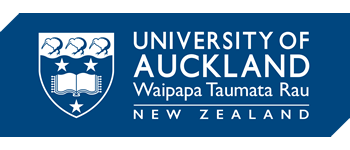
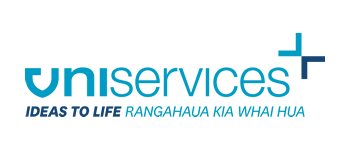
Dr Richard Winkworth - Ampersand Technologies / Massey University
Protecting primary industries and the environment with next-generation DNA diagnostics that are fast, cheap and accurate
Dr Richard Winkworth is the Founder and Managing Director of Ampersand Technologies Ltd, a start-up creating the next generation of anywhere, anytime genetic diagnostics for applications in horticulture, agriculture, and environmental monitoring.
Richard’s research at Massey University, a collaboration with Prof. Peter Lockhart, has explored the application of new DNA amplification technologies to genetic testing. Testing no longer needs to be expensive, time-consuming and performed in a lab; new approaches make tests that are cheap, rapid and portable a reality. Furthermore, testing at the point of need with results delivered in real-time is game-changing. This opens the door to applying genetic testing to a much wider range of targets and substantially improves our ability to predict, respond, and manage based on the results.
Richard launched Ampersand Technologies in 2021, attracting significant investment from Matū and Massey Ventures Ltd. Ampersand offers custom genetic test design, end-to-end diagnostic solutions, and a testing service.
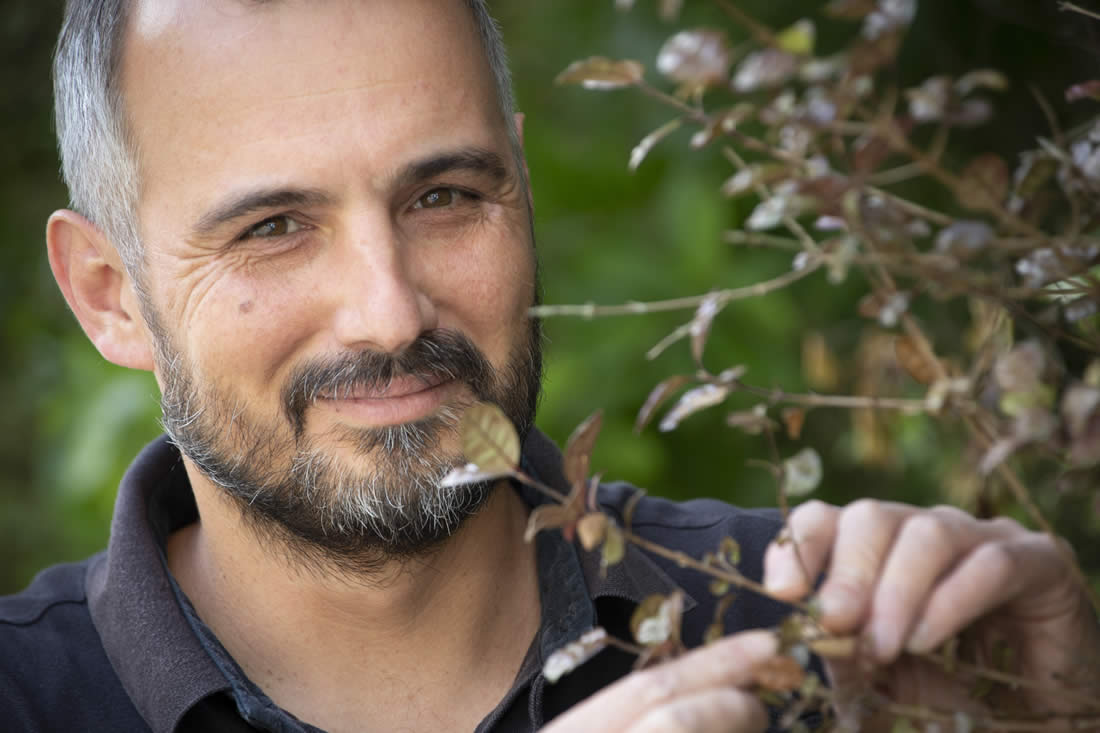
Ampersand’s current portfolio includes tests for kauri dieback and myrtle rust – both which are diseases that threaten taonga species. Other tests are under development.
Results provided by Ampersand are already being used to inform decision-making in the fight against kauri dieback. The Ampersand test is faster, more sensitive and more cost-effective than the standard assay. For the first time, surveillance and monitoring of the kauri dieback pathogen on the landscape-level and above is within reach.
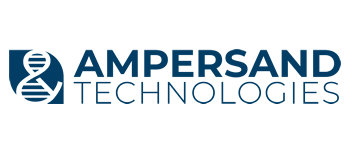
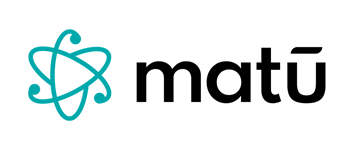

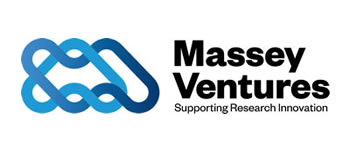
Researcher Entrepreneur Finalists
This award recognises an entrepreneurial researcher who has made outstanding contributions to business innovation or has created innovative businesses in New Zealand through technology licensing, start-up creation or by providing expertise to support business innovation.
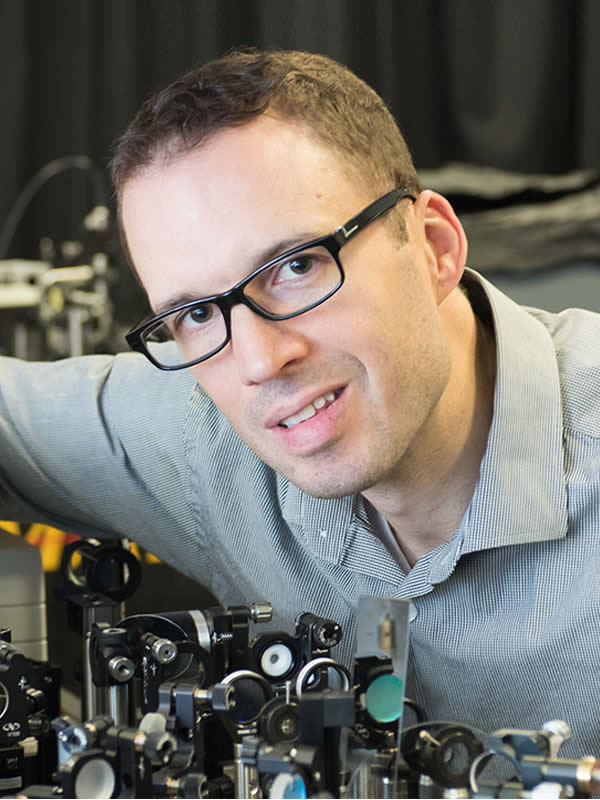 Professor Justin Hodgkiss
Professor Justin Hodgkiss
Te Herenga Waka - Victoria University of Wellington
Pursuing commercial outcomes and supporting early career researchers to be part of this journey
 Distinguished Professor Maggie-Lee Huckabee
Distinguished Professor Maggie-Lee Huckabee
University of Canterbury
Innovative technologies for effective rehabilitation of swallowing impairment.
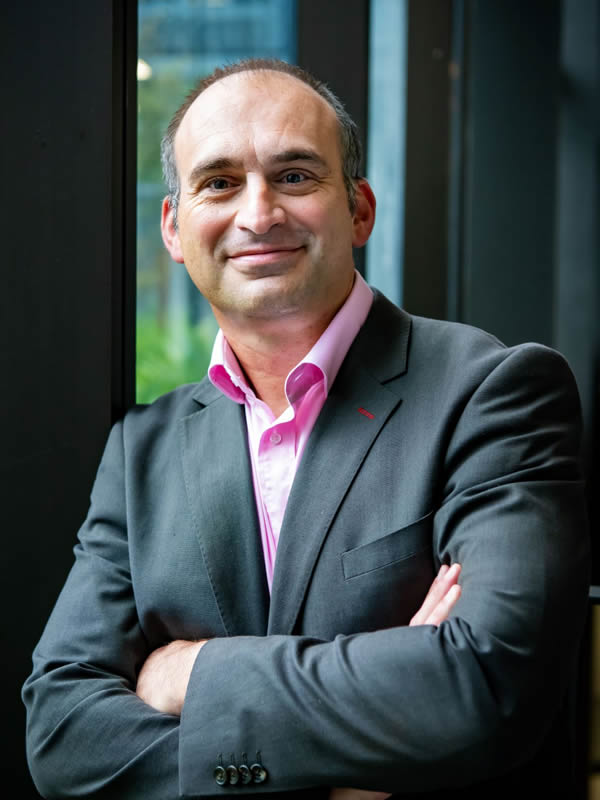 Associate Professor Franck Natali
Associate Professor Franck Natali
Te Herenga Waka - Victoria University of Wellington
Serial entrepreneur revolutionising ammonia production while developing student entrepreneurs
Professor Justin Hodgkiss - Te Herenga Waka - Victoria University of Wellington
A deep-tech research commercialisation leader, supporting early-career researchers to be part of the journey.
Professor Justin Hodgkiss has established an extensive track record as a leader in the commercialisation of deep-tech research. Prof. Hodgkiss’ research spans ultrafast laser spectroscopy, solar energy conversion, nanotechnology, and DNA aptamers, and he is highly published, highly cited, and has won awards for his knowledge creation. He has developed NZ-based ventures and supported the next generation of entrepreneurs to embark on their own commercialisation journeys.
Prof. Hodgkiss was instrumental in developing two Wellington UniVentures spin-out companies: Auramer Bio and Advemto. Advemto is initially targeting academic markets to address the complex operation of ultrafast optical spectrometers for measuring dynamics on femtosecond timescales. Alongside co-founder Dr Kai Chen, Prof. Hodgkiss’ team developed a unique rapid spectroscopy tool, enabling scientists to measure fast dynamics in proteins, as well as solar cells, LEDs, and photonics materials. The company is already exporting unique ultrafast optical spectrometers, and Prof. Hodgkiss has actively engaged in the invention and R&D to sales, as well as investor engagement and governance.
As Co-Director at the MacDiarmid Institute, Prof. Hodgkiss fosters the growth of young research entrepreneurs. Prof. Hodgkiss has helped develop an entrepreneurial culture through a combination of hands-on training opportunities, peer networks, and targeted funding for emerging entrepreneurs.

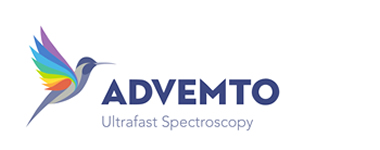

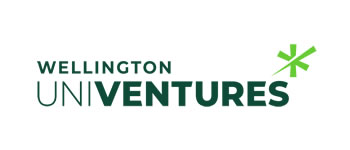
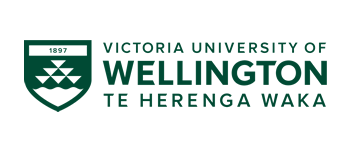
Distinguished Professor Maggie-Lee Huckabee - University of Canterbury
Innovative technologies for effective rehabilitation of swallowing impairment.
For over 40 years, Distinguished Professor Maggie-Lee Huckabee has been working with patients to effectively rehabilitate swallowing impairment. As a former clinician-turned-researcher and now start-up founder, Maggie-Lee ensures her research reflects patient needs and improves patient well-being.
In 2014, she founded the University of Canterbury Rose Centre for Stroke Recovery and Research (the Rose Centre). Here, patients are considered partners in research to inform new developments, all while receiving state-of-the-art intensive treatment.
Prof Huckabee and the Rose Centre’s biomedical engineer, Esther Guiu Hernandez, developed the Biofeedback in Strength and Skill Training (BiSSkiT) software and treatment protocol. In 2016, this software was commercialised, and well-received worldwide. Though, feedback from clinicians revealed that they loved the approach but lacked resource and were hungry for telehealth options.
Redevelopment of the initial device led to the BiSSkApp – an app-based biofeedback device for home use that uses a small wireless sensor under the chin to display a waveform on the app. This allows patients to ‘see’ swallowing and refine motor patterns. Patients complete intensive training at home, with data transfer via a cloud facility to clinicians, who remotely supervise and adapt the treatment programme as needed.
Swallowing Technologies Ltd was incorporated in April 2021 as the commercial ‘arm’ of the Rose Centre, transferring technology from the laboratory to patients and clinicians who need them. The company has grown to eight employees, who develop patient-driven technologies that improve patient outcomes.

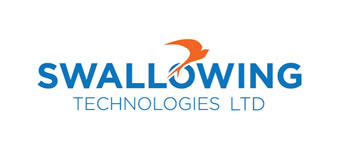

Associate Professor Franck Natali - Te Herenga Waka - Victoria University of Wellington
Serial entrepreneur revolutionising ammonia production while developing student entrepreneurs.
Franck Natali is an Associate Professor of Physics at Te Herenga Waka—Victoria University of Wellington.
A long-time investigator with the MacDiarmid Institute, Associate Professor Natali was appointed to a two-year position in 2019 as Innovator-in-Residence at Wellington UniVentures.
In the last two years, Associate Professor Natali has discovered a new low-carbon way to manufacture ammonia. Ammonia-based fertilisers support 50% of the world's food production, and ammonia is one of the single largest chemical industrial processes on Earth, accounting for 2-3% of global carbon emissions.
Associate Professor Natali's new company, Liquium, was founded in 2021 to take this technology to market and aid global efforts to reduce carbon emissions.
As a serial inventor to counter climate change, Franck also developed a portfolio of patents on memory elements for the next generation of energy-efficient supercomputers and data centres. In 2021, he and PhD student Dr Jay Chan licensed to their niche software tool to a US-based company. The tool, known as RHEED, calculates the electron diffraction patterns of crystals.
Acknowledging the significance of his research, Associate Professor Natali was accepted into the Breakthrough Energy Fellows Programme at the end of 2021 – the only New Zealander offered a place. The programme, founded by Bill Gates, supports developing and adopting new clean technologies that can help the world achieve net-zero emissions by 2050.

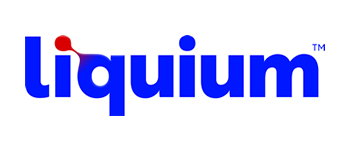



Commercialisation Professional Finalists
This award recognises a commercialisation professional working within a New Zealand research organisation who has made an outstanding contribution to the commercialisation of publicly-funded research.
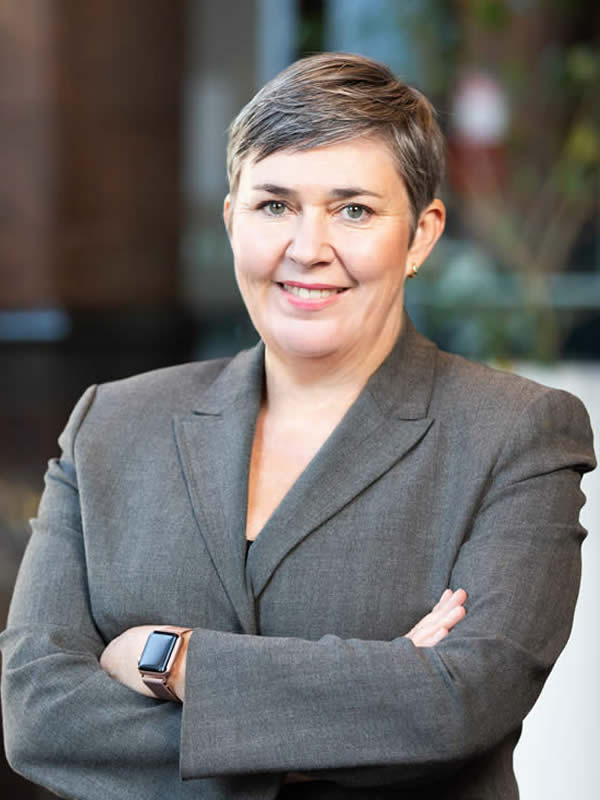 Evelyn Body
Evelyn Body
Uniservices
Unique combination of expertise resulting in exceptional outcomes.
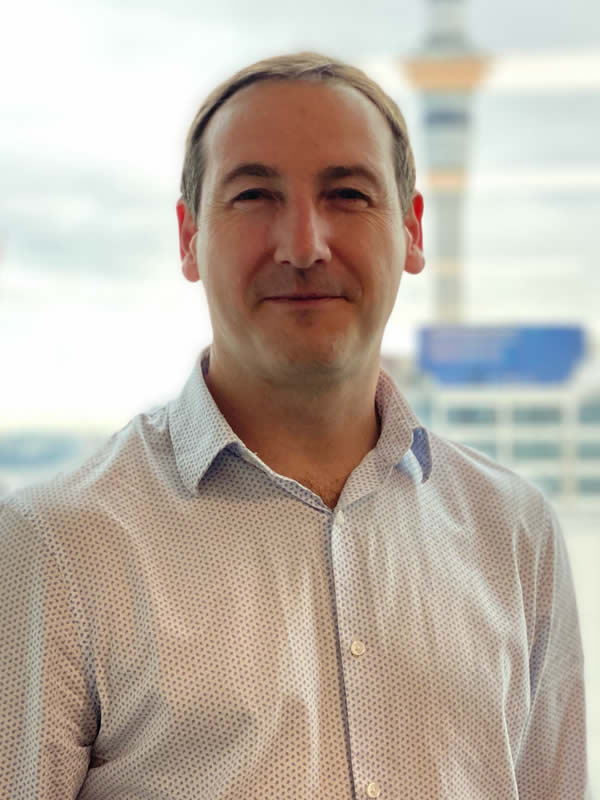 Michael Fielding
Michael Fielding
AUT Ventures
A versatile, empathetic, and inspirational teammate and leader
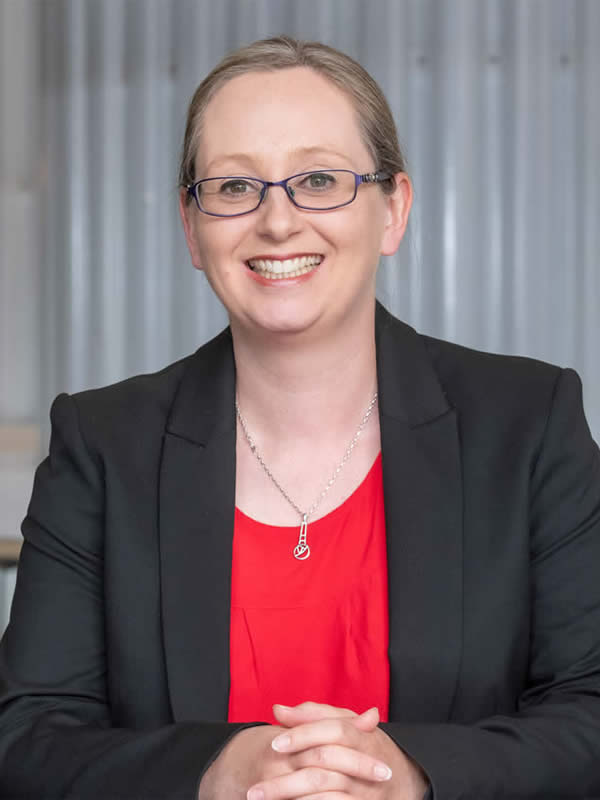 Stephanie Grant
Stephanie Grant
Wellington UniVentures
Working to safeguard the research of innovators throughout New Zealand.
Evelyn Body - Uniservices
Unique combination of expertise resulting in exceptional outcomes.
Evelyn’s expertise as a lawyer, an Intellectual Property Advisor and commercialisation expert, combined with her technical background, makes her an effective one-stop shop for advice and execution and one of the most knowledgeable and experienced practitioners in the technology transfer and early-stage investment arena in Australasia.
She has negotiated some of the largest deals, from Soul Machines US$7.5M initial investment round led by top tier VC Horizon Ventures to access agreements with major Australasian funds (MRCF and IP Group). Further, the development of best practice template agreements used widely by university start-ups, Evelyn has without doubt had a major influence on the research commercialisation landscape in New Zealand and – and beyond in her role on the Board of Knowledge Commercialisation Australia (KCA).
Her unique skill set, knowledge and experience make her a key go-to person in the translation of research to industry.



Michael Fielding - AUT Ventures
A versatile, empathetic, and inspirational teammate and leader
Whether it’s taking a research project into a spin-out company or license deal, or fostering a cooperative and innovative environment, Michael has proven that he is capable in many realms as a commercialisation professional.
In just four years with AUT Ventures, Michael has provided invaluable input for the organisation and the wider commercialisation ecosystem. This includes growing the capabilities of interns and other new employees, continuously looking for ways to speed up and improve processes, and successfully nurturing and launching AUT’s first deep-tech spin-out, RespirAq, which raised $1.5M. He is an eager connector across AUT and has consistently led the delivery of resources and workshops intending to promote researchers’ awareness of and interest in AUT Ventures and commercialisation.
As an appreciated team member and leader, Michael is always willing to participate and contribute where possible and share his knowledge and expertise with those around him. He is focused and logical in his approach to work, which is done with enthusiasm, determination, and a touch of creativity.

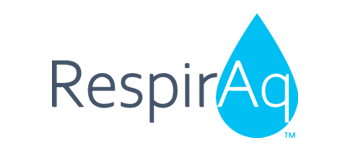


Stephanie Grant - Wellington UniVentures
Working to safeguard the research of innovators throughout New Zealand.
Stephanie Grant is Wellington UniVentures’ Intellectual Property Manager. She manages the organisation’s broad IP portfolio across all areas of technology, from immunological innovations to superconducting innovations.
Prior to Wellington UniVentures, Stephanie began her Intellectual Property (IP) career as a Patent Executive at Baldwins Intellectual Property, prosecuting over 600 patent applications. She gained extensive knowledge around intellectual property, particularly in the fields of chemistry and biotechnology.
Stephanie joined Wellington UniVentures in 2018. With IP underpinning everything at Wellington UniVentures, Stephanie’s role is to protect the high-quality research with commercial potential that is produced at Te Herenga Waka—Victoria University of Wellington. By protecting the IP associated with research, Stephanie ensures that researchers and the University gain exclusive legal rights to utilise that IP for maximum commercial benefit and impact. An example includes successfully obtaining a granted US patent licensed to Wellington UniVentures’ spin-out Rekover Therapeutics.
Stephanie is also an active member of the New Zealand Intellectual Property Attorneys Incorporated (NZIPA), representing in-house attorneys on the council. This is the first time in NZIPA’s history that an in-house attorney has been appointed.



Breakthrough Project Finalists
This award recognises a project that demonstrates best practice commercialisation of publicly-funded research.
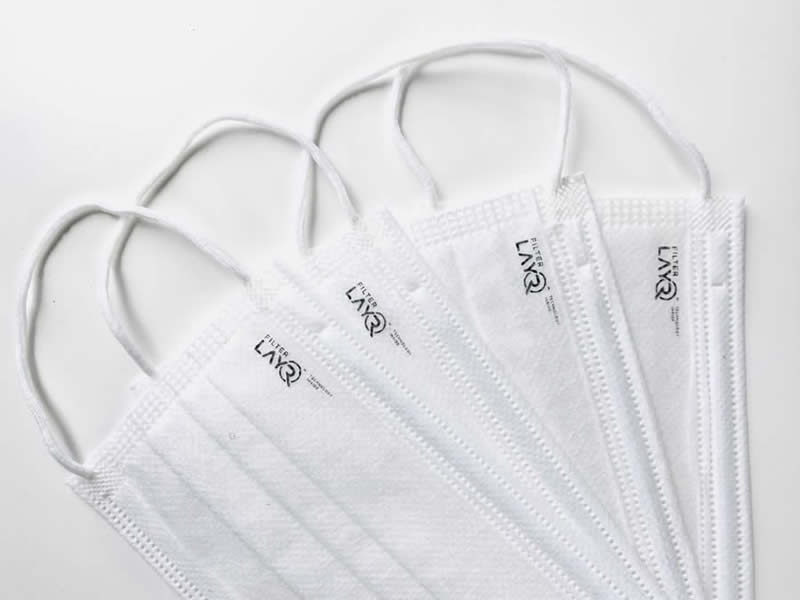 Filterlayr™, Another NanoLayr Innovation
Filterlayr™, Another NanoLayr Innovation
FilterLayr™ Eco – The Bio-derived, Covid-Killing Air Filtration Media.
 Gastric Alimetry
Gastric Alimetry
UniServices
Gastric Alimetry - The new test of gastric function.
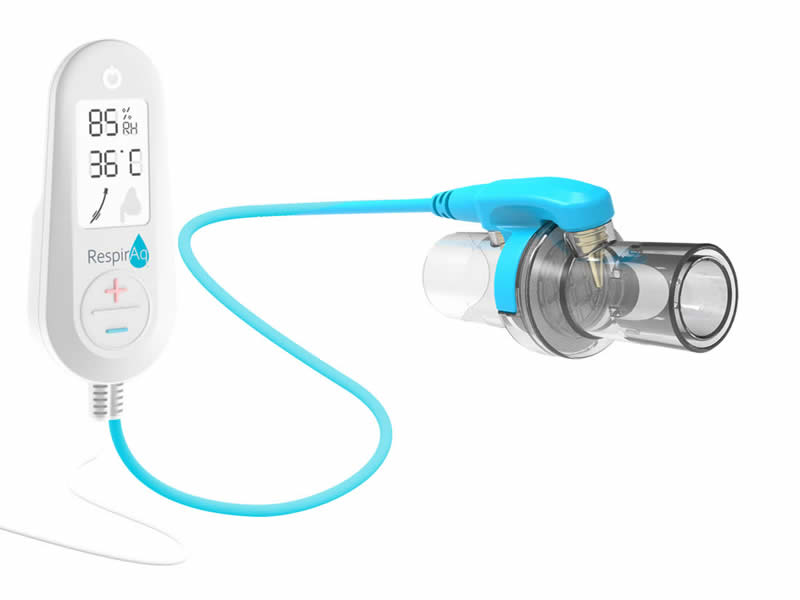 RespirAq - AUT Ventures
RespirAq - AUT Ventures
Waterless, active, heated respiratory humidification – small, portable, and easy to use.
Filterlayr™, Another NanoLayr Innovation
FilterLayr™ Eco – The Bio-derived, Covid-Killing Air Filtration Media.
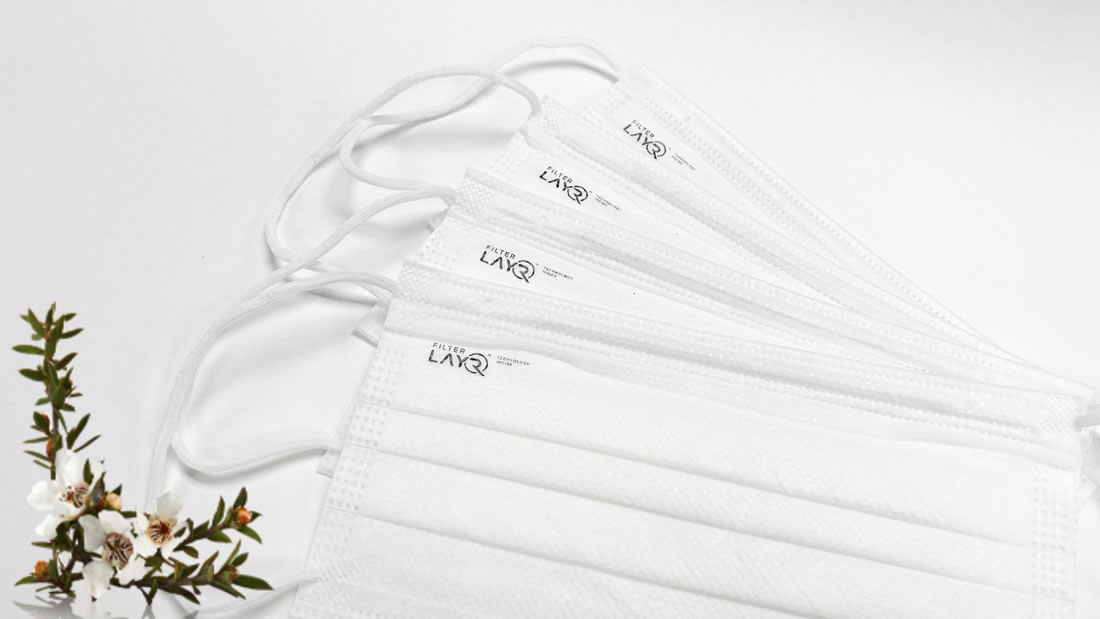
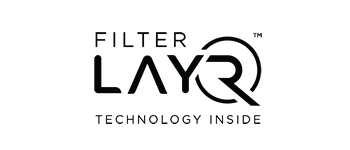
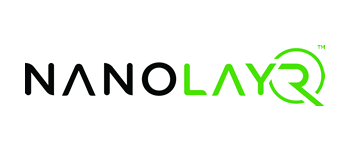
Showcasing grass-roots New Zealand’s ingenuity, NanoLayr has developed an air filtration media made from industrially compostable materials that feature antimicrobial properties. This novel product offers distinct advantages from a sustainability and efficiency perspective, mitigating the environmental impact caused by the pandemic across the face mask and HVAC sectors.
FilterLayr™ exists to improve the quality of life for users by providing clean, filtered air within our environments, trapping up to 99% of airborne particles. The recently developed FilterLayr™ Eco kills >99% of trapped airborne bacteria and viruses (including the COVID-19 Delta variant), making it antimicrobial and antiviral. This innovative bacteria and virus-killing non-woven textile is impregnated (not coated) with natural oils, not harmful substances. Washable and bio-derived, FilterLayr™ is a versatile platform that can be used in both masks and HVAC residential filtration, manufactured at scale right here in New Zealand.
FilterLayrTM Eco has been released in New Zealand through an online launch that capitalises on the momentum of market demand. The ‘eco-derived’ component of FilterLayr™ has continued to evolve in their air filtration story; one recognised as an innovative solution by The Ministry of Business, Innovation and Employment (MBIE) Covid-19 Innovation Acceleration Fund. The project went above and beyond the original scope to improve the quality of life of the users.
Gastric Alimetry - UniServices
Gastric Alimetry - The new test of gastric function.




Gastric Alimetry is a breakthrough medical device to diagnose gastric disorders. It is wearable and non-invasive, using advanced flexible electronics to sense the movements of the stomach from the skin surface. Patients simultaneously log their symptoms into the Gastric Alimetry App, resulting in a cloud-based report that provides actionable data that uniquely identifies gastric diseases to better inform patient's care. Gastric Alimetry improves outcomes while reducing healthcare expenditure through reduced negative testing.
Gastric Alimetry is already being used in ten hospitals in six countries, with hundreds of tests completed and CE Mark and FDA regulatory approval.
Alimetry is a spin-out of the Bioengineering Institute at the University of Auckland, based on ten years of world-leading science and innovation. Tech transfer was managed by UniServices and supported by the University of Auckland Inventors Fund and PreSeed Accelerator Fund. UniServices then led Alimetry through their first round of investment funding in 2020 and supported Alimetry through their $16.3M Series-A round one year later in December 2021.
When commenting on the tech-transfer path that Alimetry and UniServices achieved, the lead Series A investor MOVAC commented: “So far, Alimetry’s commercial path has been textbook perfect.”
Alimetry recently won three prestigious NZ Hi-Tech Awards for Most Innovative Deep Tech Solution, Most Innovative Hi-Tech Creative Technology Solution, and Most Innovative Hi-Tech Hardware Product.
RespirAq / AUT Ventures
Waterless, active, heated respiratory humidification – small, portable, and easy to use.



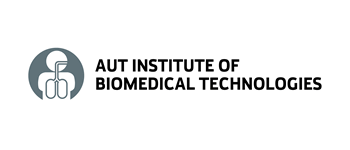
RespirAq Limited was launched in December 2021 with an oversubscribed $1.5M Seed round led by Outset Ventures and joined by Icehouse Ventures and Cure Kids Ventures. Its growing team of eight, led by inventor, CEO and founder Dr Sandra Grau Bartual, are on their way to disrupting a $2B segment of the global medical device industry.
RespirAq technology is the first fundamentally new medical airway humidification technology in decades. The RespirAq active heated humidifier removes the need for bulky water supply, tubing and sensors, making it a remarkably elegant and compact solution for medical humidification.
RespirAq uses a chemically activated “smart fabric” to humidify the air breathed by patients on ventilators and other types of respiratory support. RespirAq provides the same level of humidification as those provided by well-known companies, but without the need to regularly refill water chambers and without creating any tube condensation.
RespirAq’s launch culminated a four-year commercialisation journey led by AUT Ventures and supported by KiwiNet. The team also secured $169,000 of COVID-19 innovation funding from the Ministry of Business, Innovation and Employment (MBIE), used to run a successful clinical study and to advance the technology for hospital applications such as COVID-19 treatment.
Commercial Impact Finalists
The commercial impact award celebrates excellence in research commercialisation delivering outstanding innovation performance and the potential for generating significant economic impact for New Zealand.
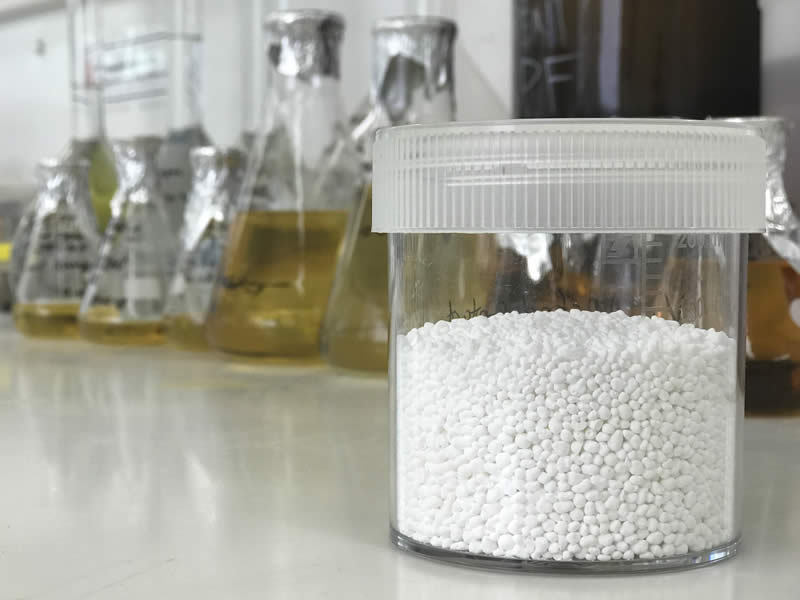 Ligar
Ligar
Wintec Te Pūkenga & WaikatoLink
World-first commercial purification platform.
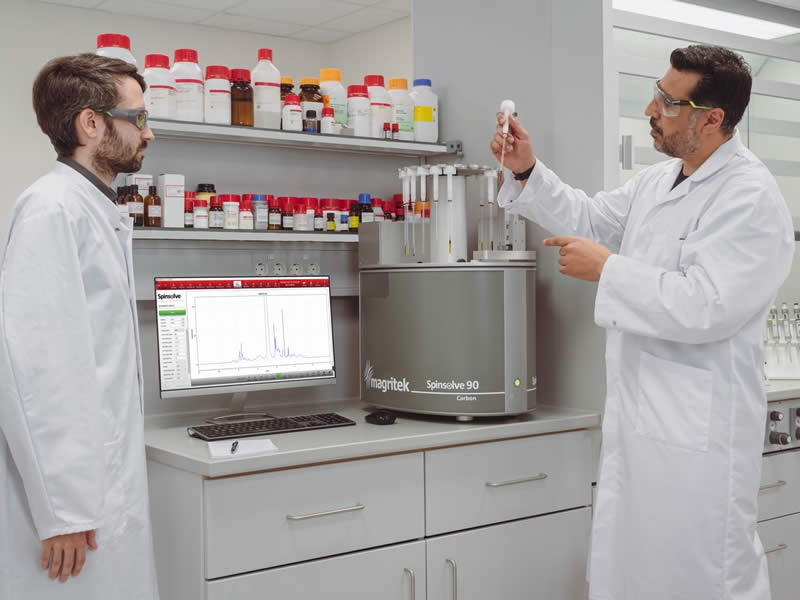 Magritek
Magritek
Massey Ventures & Wellington UniVentures
Beautiful Science to Business.
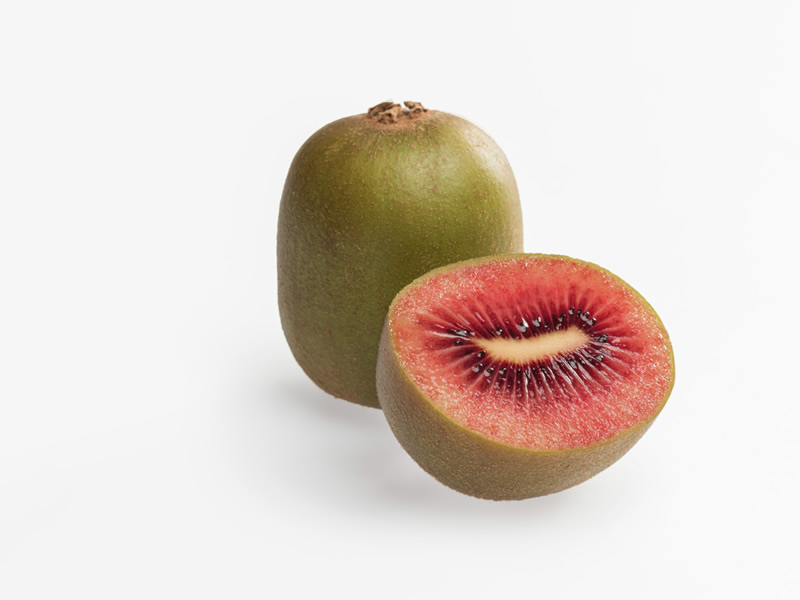 Zespri Rubyred - Plant & Food Research and Zespri
Zespri Rubyred - Plant & Food Research and Zespri
RubyRed – expanding our offering of the world's best kiwifruit.
Ligar - Wintec Te Pūkenga & WaikatoLink
World-first commercial purification platform.
Ligar develops and manufactures world-first commercial systems which isolate specific molecules using Molecularly Imprinted Polymers (MIPs). MIPs are ‘smart’ materials that can selectively capture and remove specific molecules from fluids. Ligar’s MIPs can be manufactured at scale, and its easy-to-use MIP systems can cost-effectively process large volumes of liquid – solving problems existing technologies don’t address.
Ligar’s technology can be applied to high-value molecules, and contaminants that may only be present at the part-per-billion level. MIPs can remove unwanted compounds, collect desirable high-value compounds that clients want in their products, and modify or rebalance flavours in beverages.
Ligar’s journey started in 2011 when Miruna Petcu, a Wintec-based chemist interested in developing commercial applications for MIPs, teamed up with WaikatoLink. With PreSeed investment from KiwiNet, Ligar’s MIPs were developed to proof of concept stage, and a spin-out company was formed. Nigel Slaughter, originally WaikatoLink’s General Manager of Commercialisation, has worked with Ligar since its inception and is currently Chief Exploration Officer.
Proudly headquartered in Hamilton, Ligar has built up an expert team that partners with global companies with the capability to commercialise the platform at scale. Ligar’s wine and cannabis processing systems are entering the market in 2022, and a wide range of opportunities are underway with commercial partners. Critically, Ligar has also achieved FDA, Canadian and New Zealand regulatory approvals MIPs that are intended for use in the processing of foods.
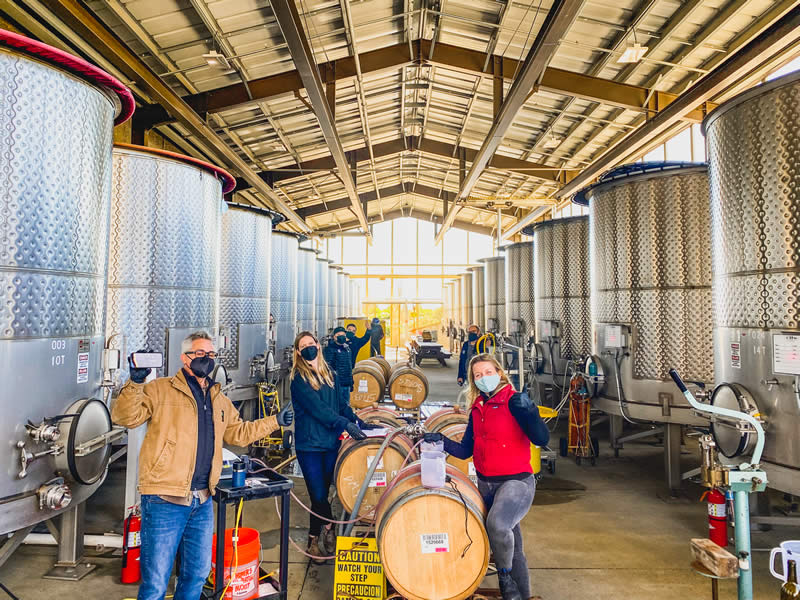


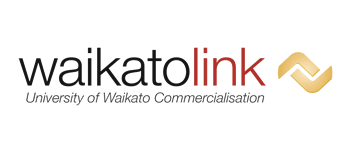

Magritek - Massey Ventures & Wellington UniVentures
Beautiful Science to Business.
Magritek is a hugely successful business which grew out of decades of world-class research from teams at Massey University and Te Herenga Waka—Victoria University of Wellington. Magritek was incorporated in 2004 to manufacture products based on Nuclear Magnetic Resonance (NMR) technology.
Magritek’s main product today is the Spinsolve Benchtop NMR Spectrometer, which measures the chemical structure of molecules, and is the globally leading product in a rapidly growing and competitive market. . In addition, the company has developed a number of other solutions, including their initial product aimed at the tertiary education market, which in turn financed new product lines, including spectrometers, and smaller, NMR devices for materials industries.
In 2012 Magritek merged with a small German start-up company working in the same field and began building up its production facilities closer to where its customers are located. In 2013 Magritek opened a US sales and support office to support its customers in the North American market.
Magritek also attracted the attention of Wellington-based Rangatira Investments in 2013, which provided expansion capital and brought their total shareholding to 24% over the years. In recent years, Massey University and Wellington UniVentures have been able to sell some of their shares in the company and reinvest the proceeds in building the next generation of university-derived start-up companies.
Magritek continues to follow a strong growth trajectory, successfully competing with and out-selling several large listed scientific instrumentation companies in this field.

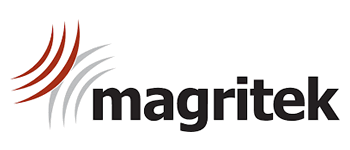




Zespri Rubyred - Plant & Food Research and Zespri
RubyRed – expanding our offering of the world's best kiwifruit.
Zespri and Plant & Food Research have commercially released the new Zespri RubyRed™ kiwifruit that has a unique deep red colour and berry-like flavour. Consumer response has exceeded expectations and suggest that it will attract new and younger consumers into the kiwifruit category, complementing Zespri's offering of the world’s best kiwifruit.
Zespri RubyRed™ Kiwifruit was available in commercial volumes for the first time in 2022 in New Zealand, Singapore, Japan and China, with volumes of around 115,000 trays. The projected demand forecast across key markets from 2022 to 2032 could see it grow to 15 million trays and increase to other key markets as volume grows.
The successful partnership between Zespri and Plant & Food Research also took a bold step in 2021, embarking on a new business model through the creation of a joint venture partnership – the Kiwifruit Breeding Centre – to drive even greater innovation.

